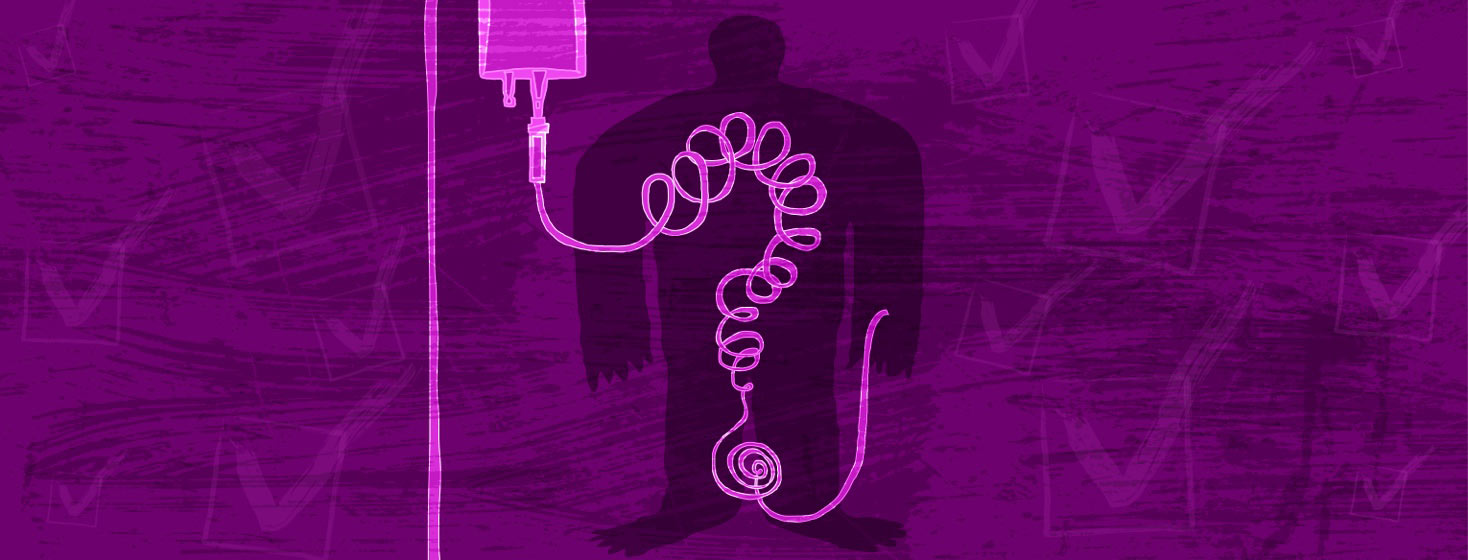Immunosuppressants: What's the Point?
There is a standard plan of care when you are diagnosed with NMOSD. It's very straightforward. Get diagnosed, get on steroids until the attack is under control, and then proceed with your doctor's choice of immunosuppressant that they feel may be best for you or what your insurance will accept (rolls eyes). Well, about that; let's save that for another conversation. When it comes to immunosuppressants, what's the reason anyway?
What is an immunosuppressant?
Just saying, it sounds like something serious, especially to those who are newly diagnosed. Immunosuppressants are drugs that keep your immune system in check. The body’s immune system helps fight off infections that cause illness. But sometimes, the immune system mistakenly attacks healthy cells and tissues. Immunosuppressants can slow or stop this response.1 If you have an autoimmune disease like NMOSD, you need an immunosuppressant. It's as simple as that.
How are immunosuppressants administered?
It typically depends on the type of drug. Most of the time, these drugs are administered via IV on a set schedule according to the drug. There are several types of drugs, which include the following. Please note, not all drugs used to manage NMOSD attacks are all FDA approved and will be noted accordingly, however they're considered "off-label":2
Other treatment options include PLEX (plasmapheresis) and IVIG (immunoglobulin therapy).
How effective are immunosuppressants at preventing an NMOSD relapse?
Everyone has a different story to tell when it comes to the maintenance medications they take, but speaking from experience, I have been on Soliris for two years, relapse free. Not every drug works for every person. Unfortunately, there may be some trial and error involved. Some patients may report being attack-free for more than 10 years while others may say that they've had several attacks within a year. It is important to have an open line of communication with your doctor to ensure you find the right immunosuppressant for you. Remember, there are a ton of new resources that are made available daily about NMOSD and its treatments, so don't hesitate to advocate for yourself if you find that there is something you feel may work for you.
It's not all sunshine and rainbows
After getting your first infusion, it's normal to think that you are going to feel better immediately. I know I did. I was super siked! I remember the first time I went to the infusion center; I went in there with a full face of makeup, eyelashes done, hair done, nails on FLEEK, outfit popping! I just knew I'd walk out of there feeling brand new. Well, the joke was on me. I felt like crap! The infusion only took around 45 minutes, but I was so tired, I felt like I'd run a marathon. I had the worst headache. I believe I slept the entire rest of the day and was fatigued for the entire weekend. After many more infusions, my body started to get used to the side effects. On the other hand, I made sure I prepared myself for the aftereffects as well just in case.
You're in it for the long haul
The point is, for those of us that suffer from NMOSD and various other chronic illness, immunosuppressants are LIFE SAVING! It's important that once we start taking and continuing taking these medications to avoid attacks. As you know, each attack is damaging, and that's the last thing we want. I am grateful to be on immunosuppressants and happy to see the advancement of science and research of NMOSD. I hope to continue seeing this progression and, one day, that one magic drug will cure us all!
Are you being treated with immunosuppressants? Tell us your experience in the comments

Join the conversation